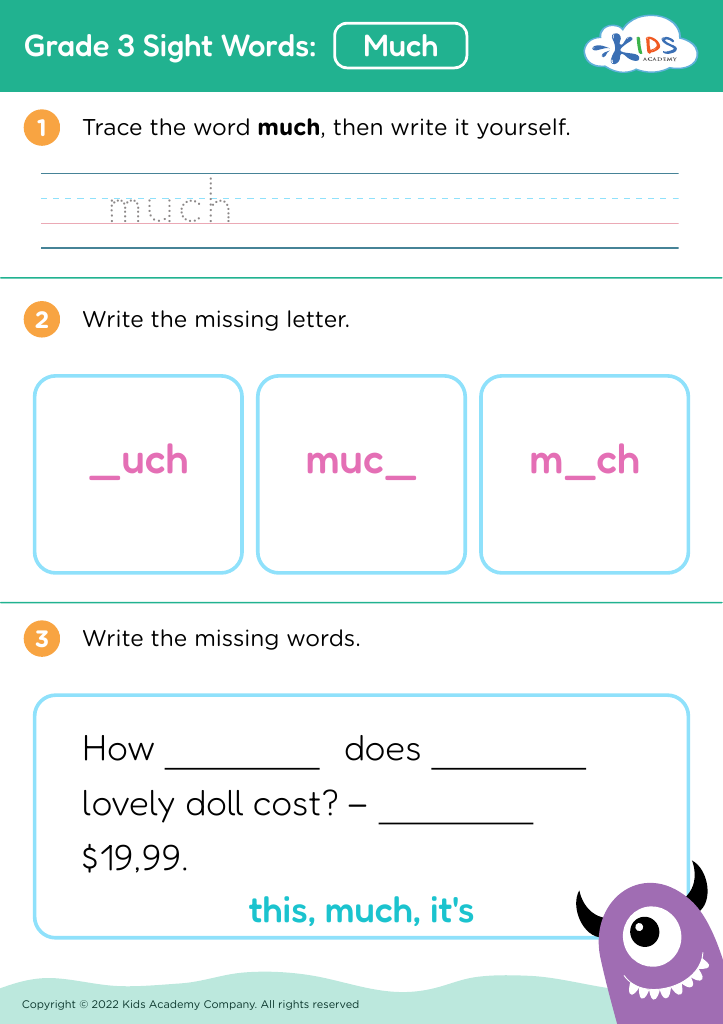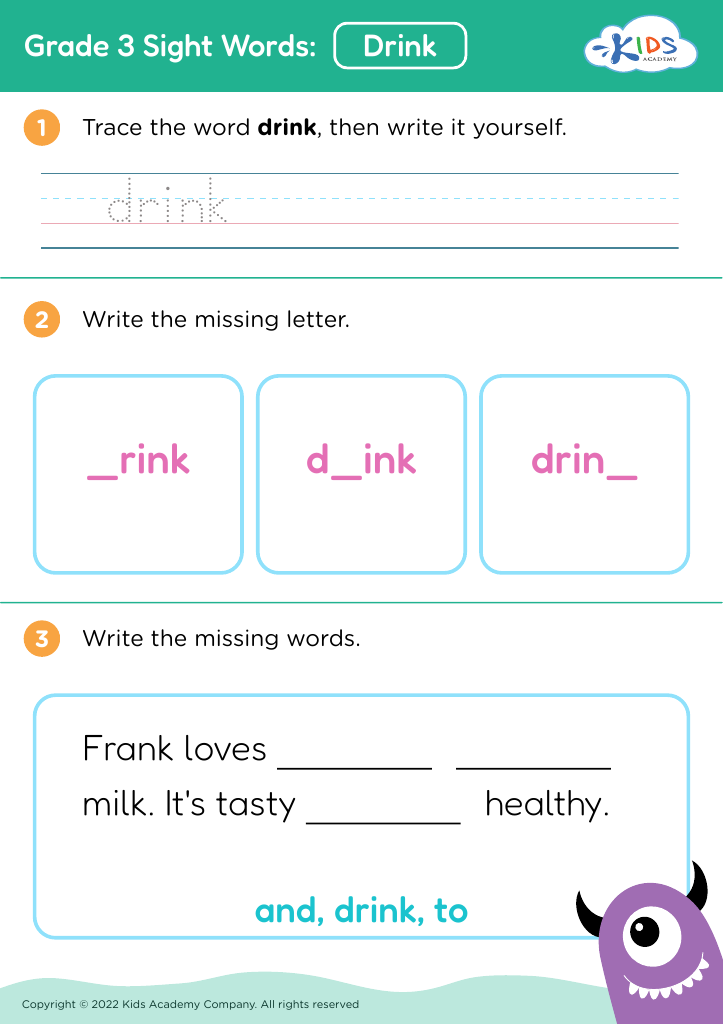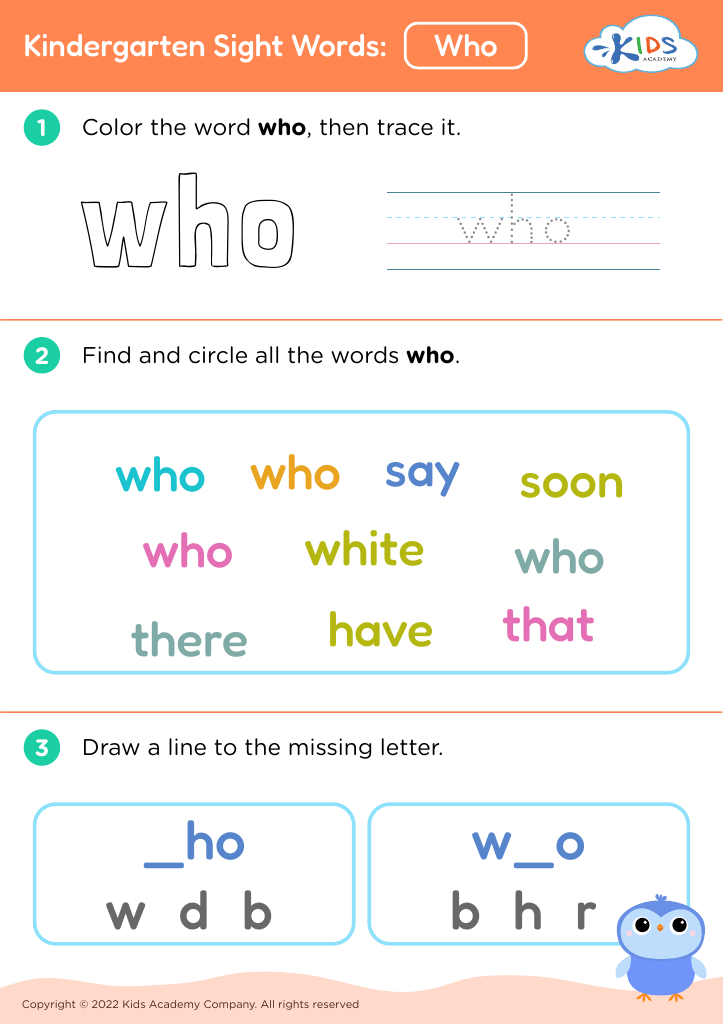Improve vocabulary Building Vocabulary Worksheets for Ages 4-9
5 filtered results
-
From - To
Enhance your child's language skills with our "Building Vocabulary Worksheets," specially designed for ages 4-9. These engaging worksheets foster vocabulary expansion in a fun and interactive way. Packed with age-appropriate activities, our resources help young learners explore new words, improve comprehension, and build confidence in their language abilities. From matching games to word searches, each worksheet is crafted to stimulate curiosity and encourage learning through play. Equip your child with essential tools for academic success and lifelong communication skills. Explore our collection now and watch your child's vocabulary flourish! Perfect for use at home or in the classroom.
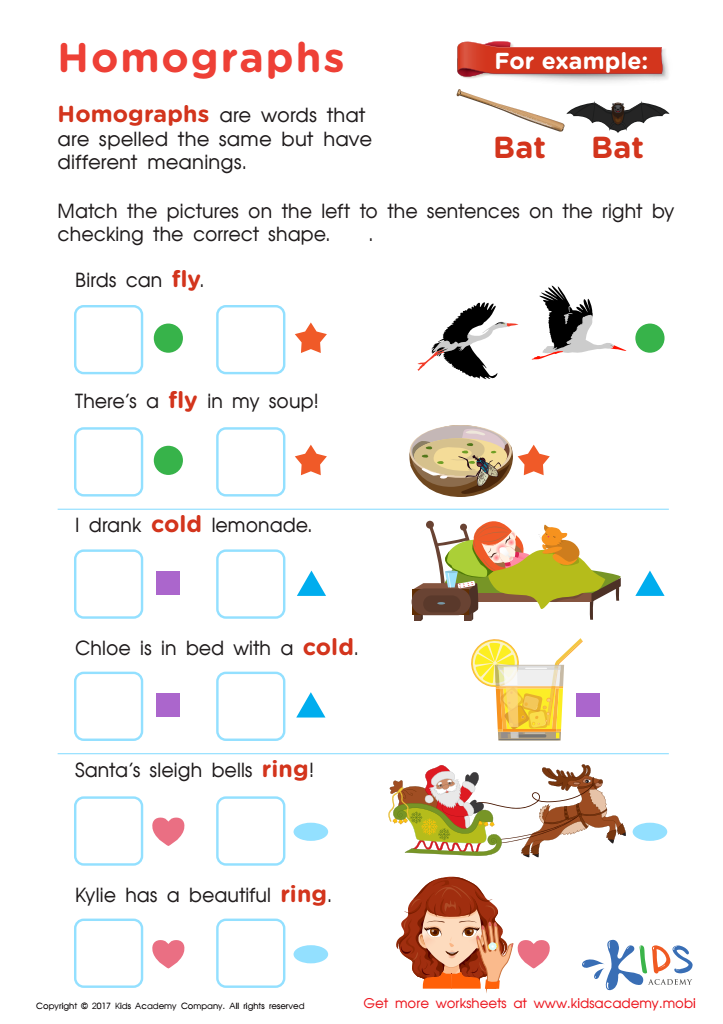

Homographs Free Printable Worksheet
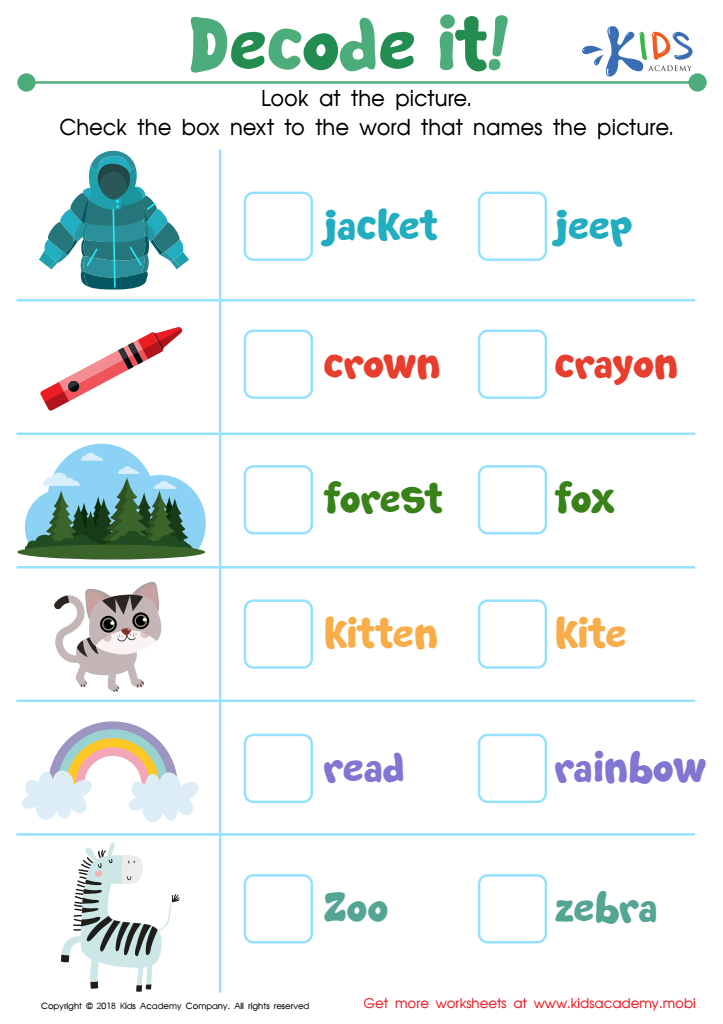

Reading: Decode It Worksheet
Building vocabulary in children aged 4-9 is crucial for several reasons, making it a priority for both parents and teachers. First, a robust vocabulary enhances reading comprehension, allowing children to engage with and understand increasingly complex texts. As they encounter new words, they can better express ideas and feelings, fostering effective communication skills essential for social interactions and academic success.
Additionally, a strong vocabulary is linked to higher academic achievement. Children who reach grade milestones in reading and writing typically have broader vocabularies, which not only aids in literacy but also supports learning in subjects such as science, history, and even mathematics through language comprehension.
Moreover, vocabulary building plays a vital role in cognitive development. It encourages curiosity, critical thinking, and creativity, as children learn to play with words and explore different meanings. Engaging in activities to enhance vocabulary, such as reading together, playing word games, or discussing new terms, nurtures a love for language and encourages lifelong learning.
In summary, investing time in developing vocabulary in young children not only prepares them for academic success but also equips them with essential communication skills for life. Parents and educators should prioritize vocabulary building to create a solid foundation for future learning.

 Assign to My Students
Assign to My Students











